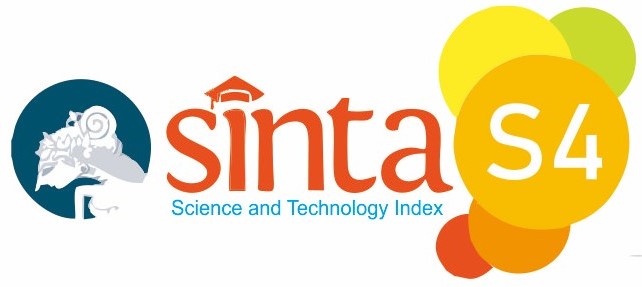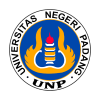EFEKTIVITAS PENERAPAN FLIPPED CLASSROOM DENGAN IMAGE PROCESSING UNTUK MENINGKATKAN KETERAMPILAN PEMROGRAMAN KOMPUTER PADA MAHASISWA TEKNIK MESIN
Abstract
Pengajaran pemrograman komputer dalam konteks teknik mesin sering kali terbatas pada konsep-konsep dasar, tanpa penerapan langsung dalam kasus-kasus teknik mesin yang konkret. Penelitian ini bertujuan untuk mengevaluasi efektivitas penerapan image processing dalam pembelajaran pemrograman komputer melalui pendekatan flipped classroom, dengan fokus pada aplikasi dalam memprediksi laju korosi. Penelitian ini dilakukan dalam dua siklus di kelas pemrograman komputer bagi mahasiswa teknik mesin. Pada siklus pertama, metode pembelajaran case method digunakan. Mahasiswa diberikan modul ajar tentang image processing dengan MATLAB dan kasus studi prediksi laju korosi yang harus dipelajari sebelum pertemuan kelas. Pertemuan kelas digunakan untuk diskusi, bimbingan, dan tes untuk mengukur pemahaman dan keterampilan mahasiswa, dengan hasil ketuntasan sebesar 60%. Siklus kedua menggunakan pendekatan pembelajaran berbasis proyek tim (team-based project). Mahasiswa dibagi menjadi kelompok kecil, diberi waktu untuk berdiskusi, dan mengerjakan proyek bersama. Tes yang dilakukan setelah pembelajaran menunjukkan peningkatan ketuntasan hingga 82,31%. Hasil penelitian menunjukkan bahwa pendekatan flipped classroom yang dikombinasikan dengan pembelajaran berbasis proyek tim dapat meningkatkan pemahaman dan keterampilan praktis mahasiswa dalam image processing. Implikasi praktis dari penelitian ini termasuk relevansinya dalam meningkatkan efektivitas pengajaran pemrograman komputer dalam pendidikan teknik mesin.
References
Abbott, D., Chipika, S., & Wilson, G. (2019). The Potential of Problem‐based Learning to Enhance Engineering Education in African Universities. Journal of International Development, 32(1), 44–61. https://doi.org/10.1002/jid.3444
Allahverdi, A. (2021). Sample Senior Design Projects of Industrial Engineering Program at Kuwait University. Asean Journal of Engineering Education, 4(1). https://doi.org/10.11113/ajee2020.4n1.14
Al-Samarraie, H., Shamsuddin, A., & Alzahrani, A. I. (2019). A Flipped Classroom Model in Higher Education: A Review of the Evidence Across Disciplines. Educational Technology Research and Development, 68(3), 1017–1051. https://doi.org/10.1007/s11423-019-09718-8
Barneveld, A. v. (2018). Engineering Educators’ Perceptions of the Influence of Professional/Industry Experience on Their Teaching Practice. Proceedings of the Canadian Engineering Education Association (Ceea). https://doi.org/10.24908/pceea.v0i0.10221
Beemt, A. v. d., Groothuijsen, S., Özkan, L., & Hendrix, W. H. A. (2022). Remote Labs in Higher Engineering Education: Engaging Students With Active Learning Pedagogy. Journal of Computing in Higher Education, 35(2), 320–340. https://doi.org/10.1007/s12528-022-09331-4
Cho, H. J., Zhao, K., Lee, C. R., Runshe, D., & Krousgrill, C. (2021). Active Learning Through Flipped Classroom in Mechanical Engineering: Improving Students’ Perception of Learning and Performance. International Journal of Stem Education, 8(1). https://doi.org/10.1186/s40594-021-00302-2
Collado-Valero, J., Rodríguez-Infante, G., Romero-González, M., Gamboa-Ternero, S., Sória, I. N., & Lavigne-Cerván, R. (2021). Flipped Classroom: Active Methodology for Sustainable Learning in Higher Education During Social Distancing Due to COVID-19. Sustainability, 13(10), 5336. https://doi.org/10.3390/su13105336
Collie, B., Woodruff, J., & O’Boyle, M. (2020). Modeling Black-Box Components With Probabilistic Synthesis. https://doi.org/10.1145/3425898.3426952
Darma, I. K., Suastawa, I. W., & Putrawan, I. M. (2022). Equality of Competencies for Diploma 3 Mechanical Engineering Study Program Graduates of Bali State Polytechnic (BSP) With the Competencies Needed by the World of Work in Bali. International Research Journal of Engineering It & Scientific Research, 8(6), 316–322. https://doi.org/10.21744/irjeis.v8n6.2237
Divjak, B., Rienties, B., Iniesto, F., Vondra, P., & Žižak, M. (2022). Flipped Classrooms in Higher Education During the COVID-19 Pandemic: Findings and Future Research Recommendations. International Journal of Educational Technology in Higher Education, 19(1). https://doi.org/10.1186/s41239-021-00316-4
Earl, A., VanWynsberghe, R., Walter, P., & Straka, T. (2018). Adaptive Education Applied to Higher Education for Sustainability. International Journal of Sustainability in Higher Education, 19(6), 1111–1130. https://doi.org/10.1108/ijshe-08-2017-0131
Figueiredo, R., Power, H., Mercer, K., & Borland, M. (2020). Embedding Librarians in Engineering Programs: Three Case Studies With Engineering Students. Proceedings of the Canadian Engineering Education Association (Ceea). https://doi.org/10.24908/pceea.vi0.14145
González-Velasco, C., Feito-Ruiz, I., González-Fernández, M., Álvarez-Arenal, J.-L., & Sarmiento-Alonso, N. (2021). Does the Teaching-Learning Model Based on the Flipped Classroom Improve Academic Results of Students at Different Educational Levels? Revista Complutense De Educación, 32(1), 27–39. https://doi.org/10.5209/rced.67851
Goti, A., Akyazi, T., Calle, A. d. l., Oyarbide-Zubillaga, A., & Alberdi, E. (2020). Validation of Real Case Solving (RCS) Methodology as an Efficient Engineering Learning Tool. Journal of Open Innovation Technology Market and Complexity, 6(4), 198. https://doi.org/10.3390/joitmc6040198
Habib, E., & Deshotel, M. (2018). Towards Broader Adoption of Educational Innovations in Undergraduate Water Resources Engineering: Views From Academia and Industry. Journal of Contemporary Water Research & Education, 164(1), 41–54. https://doi.org/10.1111/j.1936-704x.2018.03283.x
Ijemaru, G. K., Nwajana, A. O., Oleka, E. U., Otuka, R. I., Ihianle, I. K., Ebenuwa, S. H., & Raymond, E. (2021). Image Processing System Using MATLAB-based Analytics. Bulletin of Electrical Engineering and Informatics, 10(5), 2566–2577. https://doi.org/10.11591/eei.v10i5.3160
Låg, T., & Sæle, R. G. (2019). Does the Flipped Classroom Improve Student Learning and Satisfaction? A Systematic Review and Meta-Analysis. Aera Open, 5(3), 233285841987048–233285841987048. https://doi.org/10.1177/2332858419870489
Lam, L., Cochrane, T., Rajagopal, V., Davey, K. J., & John, S. (2021). Enhancing Student Learning Through Trans-Disciplinary Project-Based Assessment in Bioengineering. Pacific Journal of Technology Enhanced Learning, 3(1), 4–5. https://doi.org/10.24135/pjtel.v3i1.80
Lee, D. I., Park, J., Shin, M., Lee, J., & Park, S. (2022). Characteristics of Real-World Gaseous Emissions From Construction Machinery. https://doi.org/10.20944/preprints202211.0267.v2
Lyon, J. A., Fennell, H. W., & Magana, A. J. (2020). Characterizing Students’ Arguments and Explanations of a Discipline‐based Computational Modeling Activity. Computer Applications in Engineering Education, 28(4), 837–852. https://doi.org/10.1002/cae.22256
Lyon, J. A., & Magana, A. J. (2021). The Use of Engineering Model‐building Activities to Elicit Computational Thinking: A Design‐based Research Study. Journal of Engineering Education, 110(1), 184–206. https://doi.org/10.1002/jee.20372
Lyon, J. A., Magana, A. J., & Streveler, R. A. (2022). Characterizing Computational Thinking in the Context of Model-Planning Activities. Modelling—International Open Access Journal of Modelling in Engineering Science, 3(3), 344–358. https://doi.org/10.3390/modelling3030022
Nieke, M., Sampaio, G., Thüm, T., Seidl, C., Teixeira, L., & Schaefer, I. (2021). Guiding the Evolution of Product-Line Configurations. Software & Systems Modeling, 21(1), 225–247. https://doi.org/10.1007/s10270-021-00906-w
Rhee, E. (2018). Teaching Community-Based Learning Course in Retailing Management. Journal of Marketing Education, 40(1), 47–55. https://doi.org/10.1177/0273475317753680
Singer, S. R., & Smith, K. A. (2013). Discipline‐Based Education Research: Understanding and Improving Learning in Undergraduate Science and Engineering. Journal of Engineering Education, 102(4), 468–471. https://doi.org/10.1002/jee.20030
Singh, A., Ferry, D., & Mills, S. C. (2018). Improving Biomedical Engineering Education Through Continuity in Adaptive, Experiential, and Interdisciplinary Learning Environments. Journal of Biomechanical Engineering, 140(8). https://doi.org/10.1115/1.4040359
Terano, H. J., Tomenio, F., & Tabal, K. M. (2022). Compliance of Engineering Programs to CDIO Standards. Journal of Education Management and Development Studies, 2(4), 40–52. https://doi.org/10.52631/jemds.v2i4.159
Yoon, H. J., Han, K., & Ham, Y. (2019). A Framework of Human-Motion Based Structural Dynamics Simulation Using Mobile Devices. Sensors, 19(15), 3258. https://doi.org/10.3390/s19153258
Zaher, A. A., & Damaj, I. (2018). Extending STEM Education to Engineering Programs at the Undergraduate College Level. International Journal of Engineering Pedagogy (Ijep), 8(3), 4–16. https://doi.org/10.3991/ijep.v8i3.8402
Submitted
Copyright (c) 2024 Jurnal Vokasi Mekanika

This work is licensed under a Creative Commons Attribution 4.0 International License.








.svg_.png)


